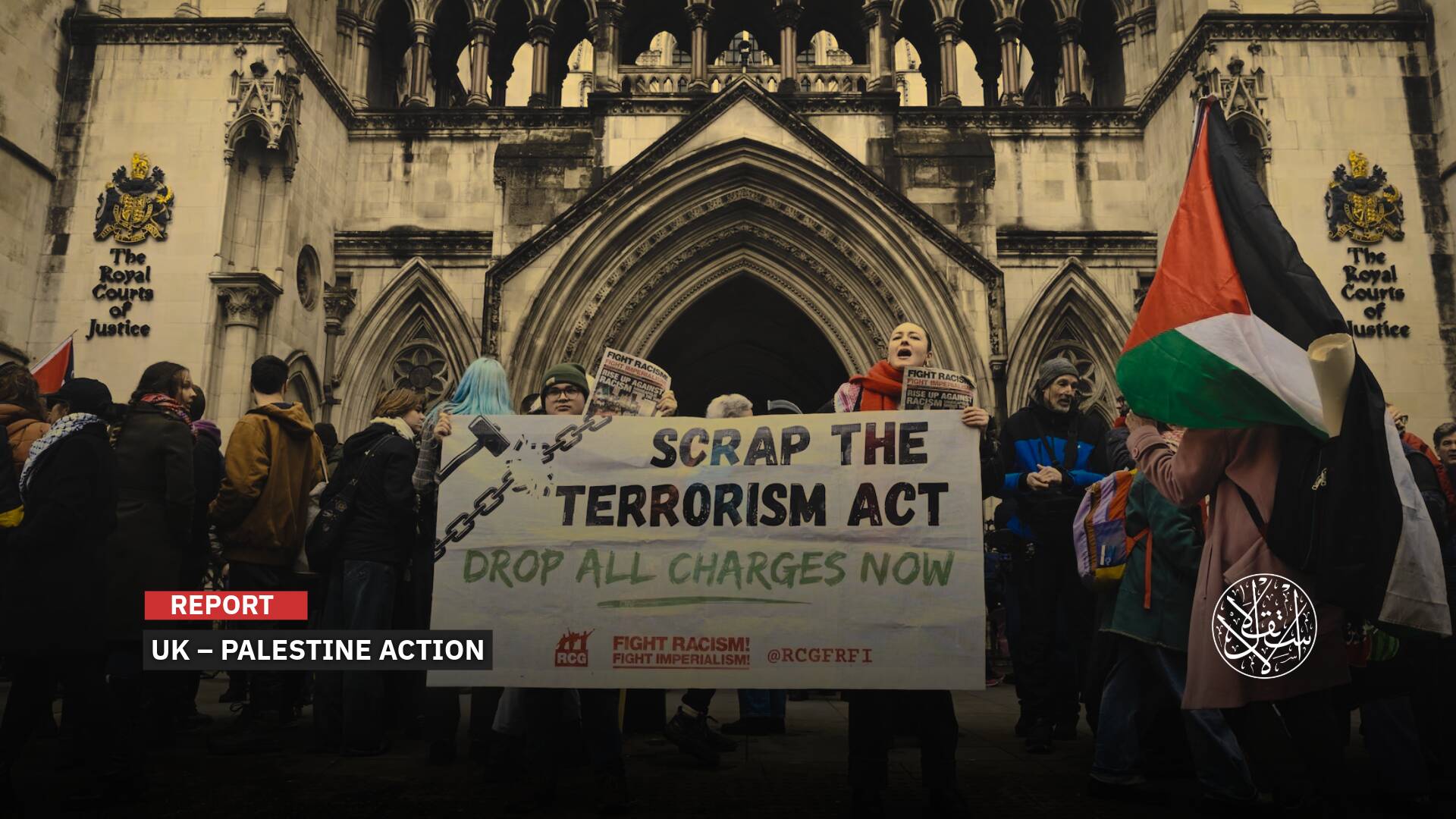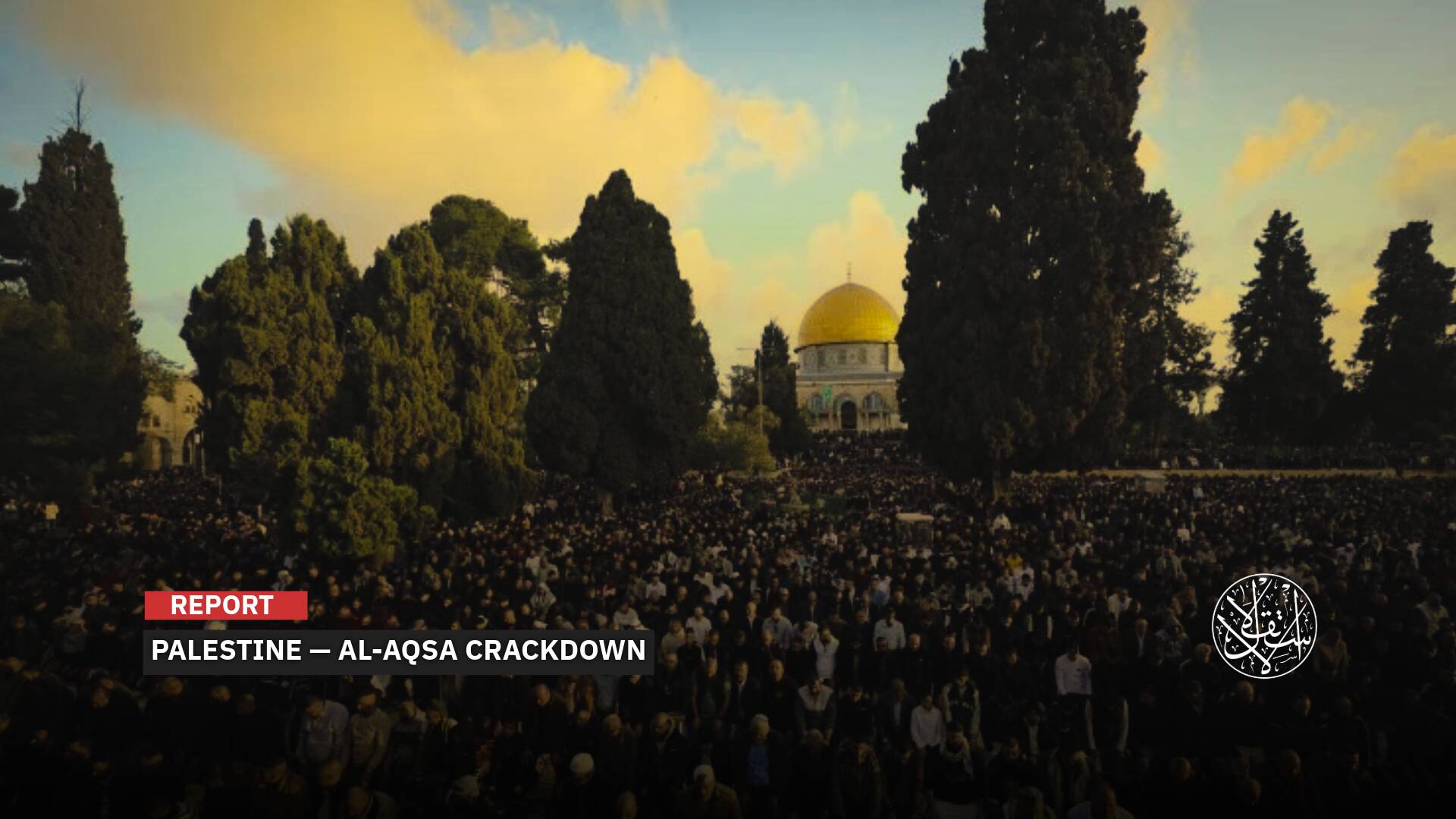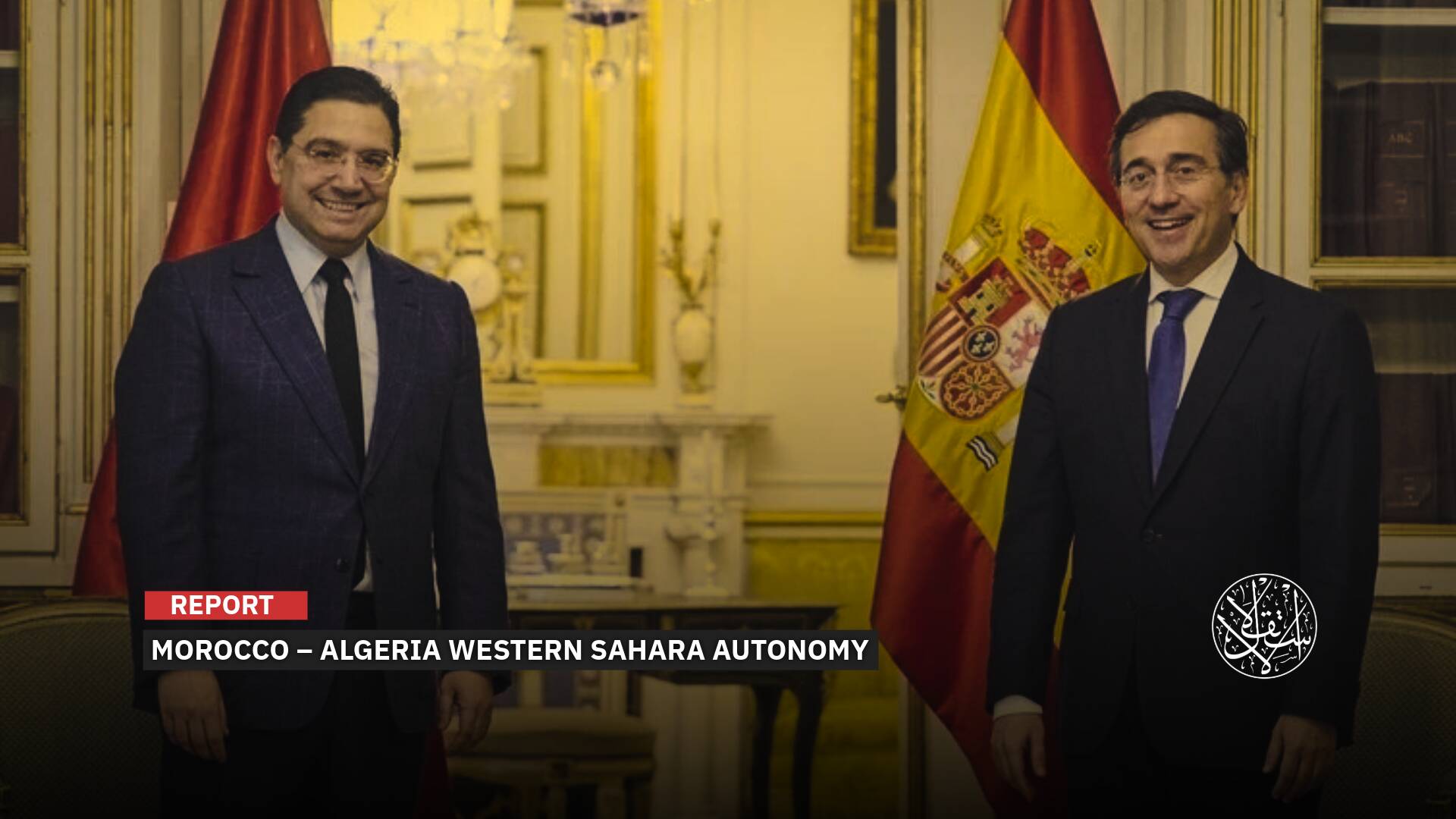Despite His Threats to Quit, Why Is Smotrich Holding On to Netanyahu’s Government?
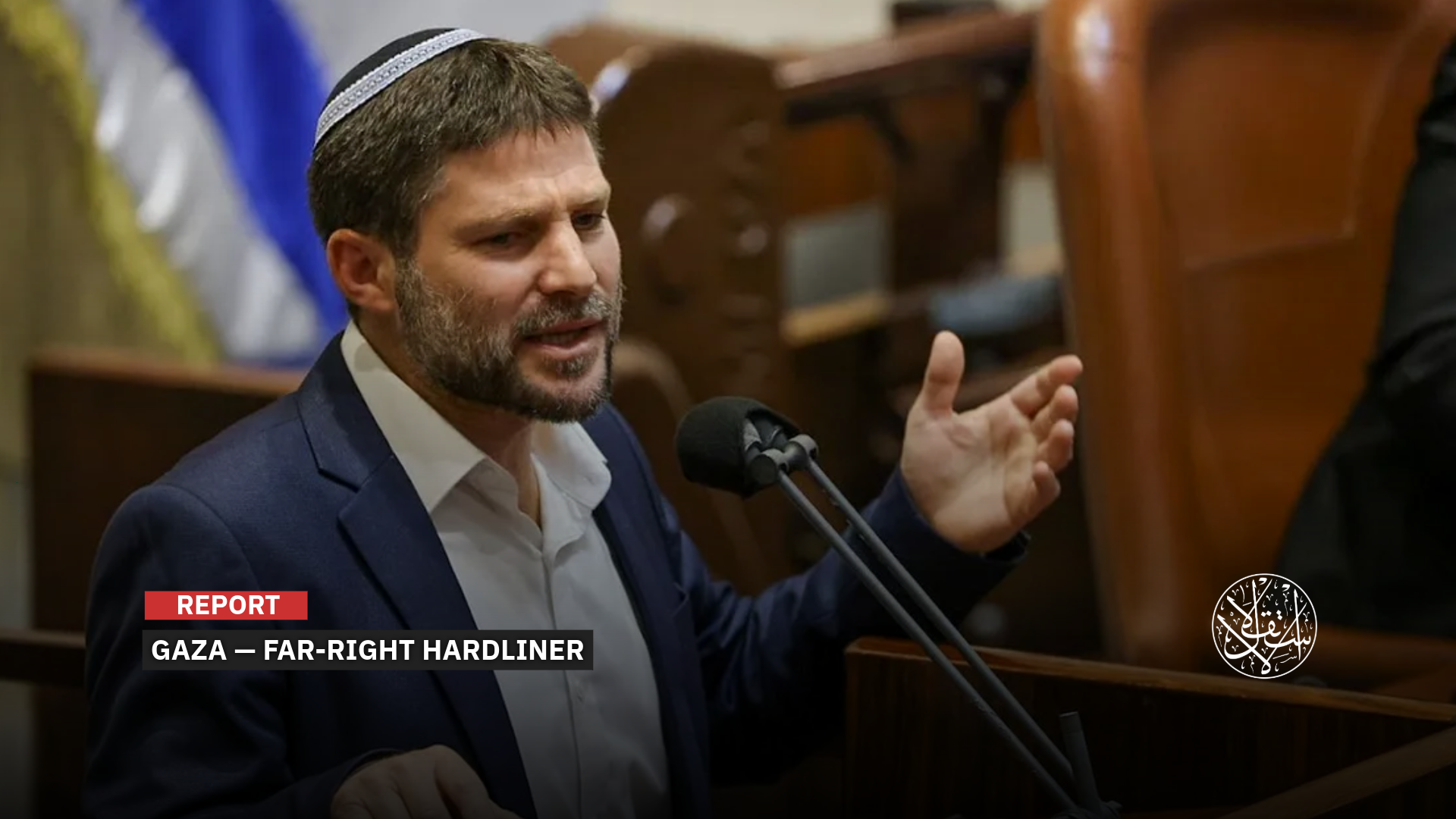
Smotrich’s influence has surged as he clings to his position in the government until the very end.
Since the formation of “Israel’s” far-right government in December 2022, two names have stood out as the loudest, most incendiary voices against the Palestinians: finance minister Bezalel Smotrich and national security minister Itamar Ben-Gvir.
In the months that followed, and especially after the Operation al-Aqsa Flood on October 7, 2023, Ben-Gvir’s star began to fade.
He resigned in protest at a temporary truce in Gaza, only to return to the cabinet once the war resumed.
Smotrich, by contrast, has only grown in influence. As the minister overseeing the “Civil Administration,” he has made it clear he intends to cling to the governing coalition until the bitter end, in pursuit of his overarching project: the annexation of the West Bank.
In recent weeks, he has added another demand to his agenda: the occupation of the Gaza Strip.
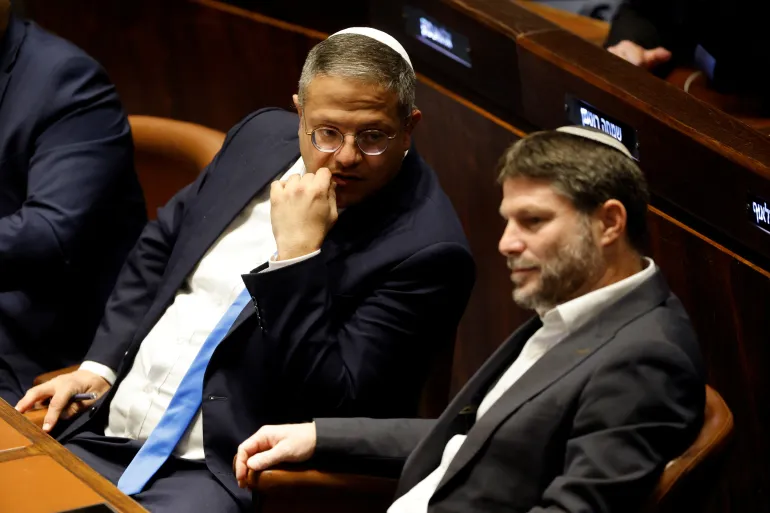
An Occupation Plan
Over the months of the continuing war, multiple Israeli and international assessments have concluded that Netanyahu has resisted a ceasefire and prisoner-swap deal with Gaza for fear it would bring down his governing coalition.
Both Ben-Gvir and Smotrich have repeatedly threatened to quit the government if Netanyahu signs such an agreement, a stance that has led him to back away repeatedly and scuttle any attempt at a breakthrough.
The two ministers are demanding the reoccupation of the Gaza Strip, the expulsion of its residents and the construction of settlements, but only after the complete destruction of Hamas, a goal Netanyahu has long echoed and vowed to deliver.
Netanyahu’s reliance on their support to remain in power is seen as a key reason the war in Gaza has dragged on.
The pair are also rivals, underscoring that extremism in “Israel” comes in more than one form.
On May 30, 2025, the U.S. magazine The Atlantic offered an example, noting that in a video released on May 19, Smotrich declared that the army’s latest offensive, dubbed Operation Gideon’s Chariots, was destroying “what is still left of the Strip, simply because everything there is one big city of terror.”
He went on to say that the population would not only be confined to southern Gaza but would continue to be displaced to other countries.
He presented all this as proof that the government had finally adopted his approach to waging the war.
Smotrich was, in this instance, defending himself against criticism from Ben-Gvir, who, according to the magazine, accused him of always trying to be “to the right of the right.”
He backed Netanyahu’s plan, presented at the time in a meeting of senior ministers, to end the blanket blockade on humanitarian aid to Gaza and allow in what he called “a minimum amount of food and medicine.”
Smotrich described the concession as necessary to enable “Israel’s” allies at the UN Security Council to defend it and permit the war to continue.
Ben-Gvir opposed the decision and, according to Smotrich’s account, selectively leaked parts of the meeting’s discussion to the media.
Soon afterward, Israeli journalists, and Smotrich himself, were bombarded with anonymous text messages criticizing him and backing Ben-Gvir’s position.
This episode, among others, highlights the contrast between the two men. Throughout the months of the war, it has become clear that Ben-Gvir has no program beyond deepening Palestinian suffering and turning the lives of prisoners into hell.
Ben-Gvir is responsible for the prisoners’ portfolio, making any truce and exchange deal a direct blow to his project, which has been built on mistreating detainees and stripping them of their rights.
This drives his constant threats to resign, a tactic aimed at preserving his popularity and keeping his promises.
Smotrich shares these goals, but his political program and support base rest primarily on his fast-tracked plan to annex the West Bank.
For that reason, he has, for the second time, backed away from his threat to quit the governing coalition.
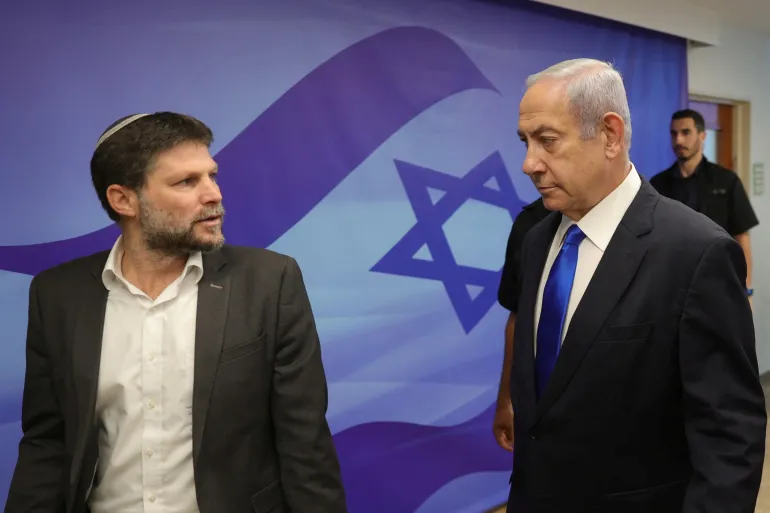
Why Stay?
At the end of July 2025, he backed down from his pledge to quit the government if “a single grain of wheat” were allowed into the starving Palestinian population in the Gaza Strip.
The Hebrew daily Yedioth Ahronoth reported that Smotrich told members of his Religious Zionism faction in the Knesset that he had no intention of leaving the government for the time being.
“In war, it's not right to make political calculations,” Smotrich said, “We are advancing a good strategy, but it’s not advisable to expand on it right now. In a short time, we will know if it pays off and where we are headed.”
Smotrich said, “He would leave the government if 'even a grain' of aid reached Hamas.”
This is the second time Smotrich has backed down from his threats; the first came in early 2025, when he chose not to follow the lead of his far-right colleague Itamar Ben-Gvir.
Ben-Gvir’s Otzma Yehudit (Jewish Power) party resigned in January in protest at the approval of a prisoner release deal and a temporary ceasefire that lasted two months.
However, the minister later returned to the coalition after the offensive resumed.
Early in 2025, academic and Israeli affairs expert Mohanad Mustafa dismissed the likelihood of Smotrich quitting the government, arguing that polling over the past year and a half consistently shows that his party, Religious Zionism, is unlikely to secure the 3.25 percent threshold of the national vote required to enter the Knesset in upcoming elections.
Opinion polls have repeatedly raised doubts about the party’s ability to cross this critical threshold in a fresh vote.
The party’s success in the last election is likely attributed to Ben-Gvir’s relative popularity, which brought votes to the joint party list.
This means Smotrich avoids toppling the governing coalition, as doing so would spell the end of his political future.
Mustafa explained that, to avoid resignation, Smotrich appeals to his base by emphasizing the “need to preserve a right-wing government because we are making significant achievements in the West Bank.”
While many Israeli politicians viewed the Operation al-Aqsa Flood attack on October 7, 2023, as a strategic disaster, Smotrich saw it as an opportunity.
In a post on X, a year into the war, he wrote that he had long anticipated reclaiming Gaza following the evacuation of settlements in 2005.
On July 29, he declared that “Tel Aviv” was “closer than ever” to reoccupying the Strip and establishing settlements there, following reports of a new plan to carry out that goal.
Smotrich’s recent remarks came during a conference held at the Yad Binyamin settlement in the occupied territories, marking 20 years since the disengagement plan.
The plan, a unilateral Israeli move implemented by Ariel Sharon’s government in the summer of 2005, involved the evacuation of settlements and military camps from the Gaza Strip, as well as four settlements in the northern West Bank at the time.

Leading Agitators
Smotrich is now widely seen as Netanyahu’s chief decision-maker and the most vocal advocate for increasingly extreme measures in Gaza, the West Bank, and even beyond Palestinian territories.
In late July, alongside his focus on Gaza and the West Bank, Smotrich called for the establishment of a “corridor” between Israel and Syria’s Sweida province, despite the absence of a shared land border.
“We must demand and obtain an immediate humanitarian corridor that will allow the delivery of food, medicine and essential equipment to the besieged Druze,” says Bezalel Smotrich.
There is no shared land border between “Israel” and Sweida, which is separated from the occupied Syrian Golan Heights by the entirety of Daraa governorate.
This renders any talk of a “humanitarian corridor” little more than an attempt to justify further occupation of Syrian territory under the guise of “humanitarian motives” this time.
In a 2016 interview, when he was a member of the Knesset representing the Jewish Home party, Smotrich stated that “Israel’s” borders should be extended to include territories from six Arab countries.
He claimed that Jerusalem’s destiny was to stretch to Damascus, and that “Israel” should annex the Syrian capital along with Jordan, and parts of Egypt, Lebanon, Saudi Arabia, and Iraq.
Smotrich is the most prominent figure within the Israeli government pushing for the annexation of the West Bank, with Netanyahu promising to deliver on this plan in exchange for his continued support of the coalition.
More recently, Smotrich has sparked escalating tensions between the political and military leadership over the intensification of the “military campaign” in Gaza and discussions of its occupation.
In early August, Hebrew media reported deepening rifts between Chief of Staff Eyal Zamir and the political level, represented by Smotrich.
These disputes have reignited comparisons between Zamir and his predecessor, Herzi Halevi, who was replaced following government criticism.
In a surprise to many Israelis, Smotrich admitted he misses Halevi, despite having been one of the most vocal advocates for his removal, according to reports by Hebrew Channel 12.
Channel i24 reported that Zamir opposes the plan to occupy Gaza and is focused solely on preparing to besiege it, placing him in direct conflict with members of the security cabinet.
Alongside Ben-Gvir, Smotrich is the most prominent figure opposing an end to the war on Gaza.
In early August, he called for the “complete annihilation” of the Strip in response to videos of prisoners released by Hamas.
Smotrich’s plans also target the Palestinian Authority, placing its destruction at the top of his political agenda.
He has imposed sanctions by withholding tax revenues and ending cooperation between Israeli and Palestinian banks.
According to i24 news, "I am a proud homophobe." So declared Bezalel Smotrich, a controversial figure who has become a major player in the Israeli political landscape.
A key figure in the coalition, the leader of the Religious Zionism party, lacks neither ambition nor nerve.
And he does not intend to remain in the shadow of “Israel’s” incoming Netanyahu, as heated negotiations in recent weeks over his future portfolios have proven.


